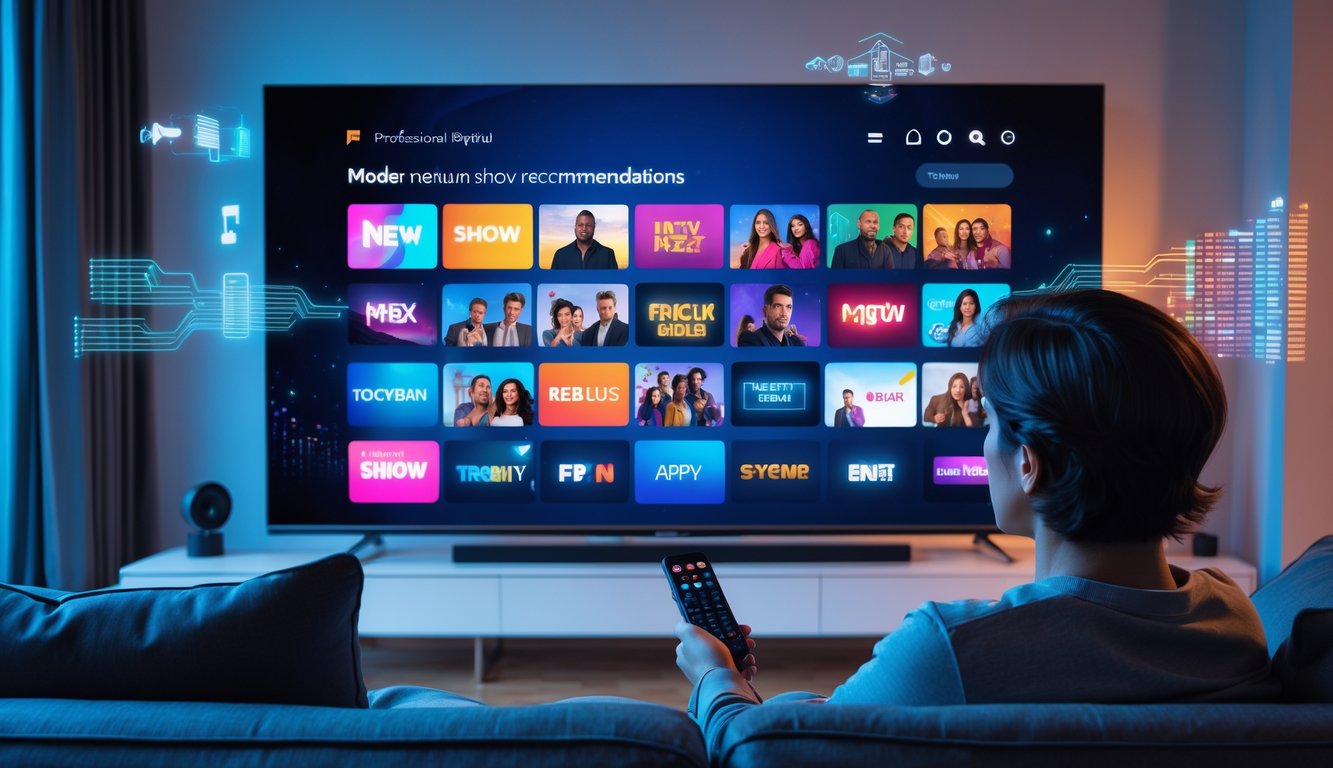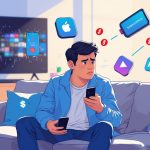
Encouraging Binge-Watching
I’m not even pretending to have self-control anymore. The second a new episode autoplays, it’s almost rude how fast it happens. Credits? What credits? The “Are you still watching?” prompt doesn’t even show up until I’ve lost all sense of time. Netflix, Hulu, HBO Max—they’re all guilty. This isn’t an accident.
Apparently, there’s research (BitMar, 2024) showing algorithms prioritize “completion probability”—that’s a real metric. They change thumbnails, shuffle trailers, whatever it takes to keep you glued. Every data point—hours watched, episodes per session, all of it—feeds the same loop: binge more, stop less, keep going. I’m not proud, but I’m not surprised either.
Driving User Engagement
It’s wild how engagement feels so natural, like I’m just really into TV. Reality check: every tap, skip, pause—it’s all tracked. Algorithms use over a thousand tags (genre, mood, plot, whatever) to build these freakishly specific suggestions. Digital, Data, and Design has a whole breakdown of how surgical Netflix gets with this stuff.
It’s not about helping me, it’s about keeping me around. More engagement means more money, longer subs, better ad rates. The process is invisible and honestly kind of creepy. Sometimes I’ll see an obscure show blow up out of nowhere, and then suddenly everyone at work is watching it too. That’s the machinery—always running, always tweaking, never sleeping.
The Feedback Loop and Echo Chamber Effect
Here’s what bugs me: I log in and see three nearly identical reality shows staring me down, like the algorithm branded me for life. Supposedly it’s “personalized,” but honestly, it just feels like I’m stuck in a rut and the platform’s happy to keep me there.
How Feedback Loops Reinforce Preferences
Watch a few episodes of “Is It Cake?” and suddenly your homepage is a never-ending parade of weird contest shows. That’s the feedback loop—every click, scroll, even a pause on the wrong trailer, and the algorithm doubles down. TikTok’s even worse; you never see anything outside your bubble. Pew Research (2023) put out a chart showing 71% of users noticed their recommendations got narrower over time. Nobody advertises this, but every engineer I’ve ever talked to admits the system works best when you think you’re in control but really, your lane’s getting smaller every day. Breaking out? Good luck. Unless you want to go full incognito or click random stuff for a week—and who actually does that? I tried forcing my queue back to nature docs, but one “Great British Baking Show” special and it all fell apart. So much for free will.
Filter Bubble and Echo Chambers
If I had a nickel for every time someone raved about a “trending” show I’ve literally never seen pop up, I’d… well, I’d still be broke, but at least I’d feel less alone in my algorithmic exile. That’s the filter bubble—algorithms quietly herding me into my own little pen, where the same actors (Pedro Pascal again?!) and genres swirl around like leftover soup. Echo chambers? Honestly, those are sneakier. I mean, I watch two true crime docs, and suddenly my feed is a graveyard of identical murder podcasts—plus, why are all the ads for mattresses? Is there some dark connection between insomnia and unsolved cases? Anyway, Oxford Internet Institute dropped a stat somewhere: apparently, after three months of regular streaming, you see over 55% less diverse stuff. I don’t even know what I’m missing. Sometimes I miss cable, just flipping through whatever random junk was on. Now, everything’s handpicked, but I still get ads for shows I finished ages ago. Is that progress?
Balancing Discovery with Personalization
Scrolling, scrolling, and—oh, look, another stand-up special. Not the one people are tweeting about. Some neon-titled oddity that looks like it was shot in a basement. I can’t even remember which app hides the “new releases” tab anymore. Feels like these apps are just guessing: show me comfort food, then lob in some wild card I’d never pick unless I was trapped on a plane. Does the algorithm actually know what I want, or is it just bored?
Promoting New and Diverse Content
Supposedly, algorithms help us discover more stuff. Supposedly. But here’s the joke: I read a Brightcove report last year—only about 25% of people actually watch new releases unless they’re shoved right in their faces. So all those quirky, low-budget shows? Lost in the void, buried under a mountain of cooking competitions and serial killer retrospectives.
Netflix keeps slapping “Top 10 Today” banners on things—sometimes it works, but usually, the new stuff just vanishes unless Twitter goes nuts for it. Hulu’s “Because You Watched…” suggestions occasionally toss in a random indie, but I’m not holding my breath. Providers love bragging about their “diverse catalogs,” but my homepage looks like a greatest hits playlist from 2019. Ellen Petry Leanse (Stanford, digital strategy, and apparently a real person) says AI works best when it nudges us slightly out of our comfort zones—not too far, or we run away. I guess?
Personalization is supposed to be a good thing, but it’s also a trap. These platforms collect everything—genres, timestamps, even which scenes I rewound because I spaced out (TechCrunch, 2024, if you care). But their main goal is keeping me glued to the screen, so the algorithm just keeps recycling my old favorites. Anything weird or new? Usually hidden in some dusty “gems” carousel nobody clicks. Ironic, right?
Breaking Out of Recommendation Bubbles
Is it just me, or do recommendations sometimes feel creepily accurate? Like, how did you know I wanted to rewatch “The Bear” after a bad day? AI-powered collaborative filtering groups me with people who apparently all have the same taste for dry comedies and existential dread. So then, thirteen more shows just like it. Fun.
But sometimes I want something totally off the wall, and the homepage just offers an echo of my last bad mood. Dr. Chaz Firestone (Johns Hopkins Cognitive Science) blames “over-personalization”—the algorithm plays it so safe, I end up in a rut. Seriously, half my feed is déjà vu.
I’ve tried clearing my history, switching profiles, whatever. It just confuses the system for a day, then it’s back to the usual. Disney+ brags about “curated discovery sections,” but I still get Moana after searching for Star Wars. Breaking out of these loops isn’t a menu setting; sometimes I have to dig through Reddit or random blogs just to find something weird. Honestly, my best discoveries happen when the app glitches and the recommendations don’t load at all. Maybe chaos is the answer?



